CTL Newsletter


The Center for Teaching and Learning is excited to announce its October newsletter, and the first issue of the fall semester. As we gear up for fall, we invite you to read some tips and news from faculty, staff and administrators.
In this issue:
- A Welcome message from Dr. Vanessa Morest
- Highlights from the New and Junior Faculty Meet and Greet
- Faculty Stress Management tips
- How do Perkins grants work
- Recap of CTL’s Annual Celebration of Teaching and Learning Symposium
- Upcoming CTL Professional Development Workshops
We look forward to connecting with you in the fall semester. If you would like to contribute to the Center for Teaching and Learning Newsletter, please send an email to: centerforteachingandlearning@sunywcc.edu.
Welcome Message from Dr. Morest
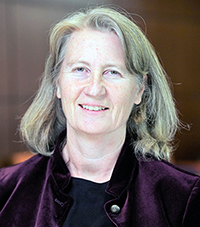 Welcome to the new academic year! Our Center for Teaching and Learning co-directors put together an excellent program of events for the fall semester. The mission of our CTL is both to provide professional development around high impact practices and to foster community. Why is community so important? Because we are teachers and learners. Community offers us an opportunity to exchange ideas and learn from one another. Just like our students, our learning as educators involves a balanced approach of developing knowledge, testing ideas and responding to feedback. If “teaching is the highest form of understanding,” (Aristotle) then we are at our best when we are simultaneously teaching and learning, because this is the path to greater understanding. The CTL offers an opportunity to exchange ideas, become a learner, and share your expertise with our SUNY-WCC community of colleagues. Thank you, as always, to the wonderful leadership of our CTL, and I look forward to seeing you all at events throughout the year.
Welcome to the new academic year! Our Center for Teaching and Learning co-directors put together an excellent program of events for the fall semester. The mission of our CTL is both to provide professional development around high impact practices and to foster community. Why is community so important? Because we are teachers and learners. Community offers us an opportunity to exchange ideas and learn from one another. Just like our students, our learning as educators involves a balanced approach of developing knowledge, testing ideas and responding to feedback. If “teaching is the highest form of understanding,” (Aristotle) then we are at our best when we are simultaneously teaching and learning, because this is the path to greater understanding. The CTL offers an opportunity to exchange ideas, become a learner, and share your expertise with our SUNY-WCC community of colleagues. Thank you, as always, to the wonderful leadership of our CTL, and I look forward to seeing you all at events throughout the year.
New and Junior Faculty Meet and Greet
The Center for Teaching and Learning hosted by Nicole Tschampel, held its New and Junior Faculty Meet and Greet on Thursday, September 12 on the front lawn of the Gateway building. SUNY WCC’s new and junior faculty were greeted by Dr. Belinda Miles, Dr. Vanessa Morest, and the deans of the academic schools, including, Rob Mangione, George Contreras, Carmen Rodriguez, and Kalpana Jain. It was a beautiful, sunny day, filled with fun opportunities to welcome the newest faculty to the SUNY WCC family.
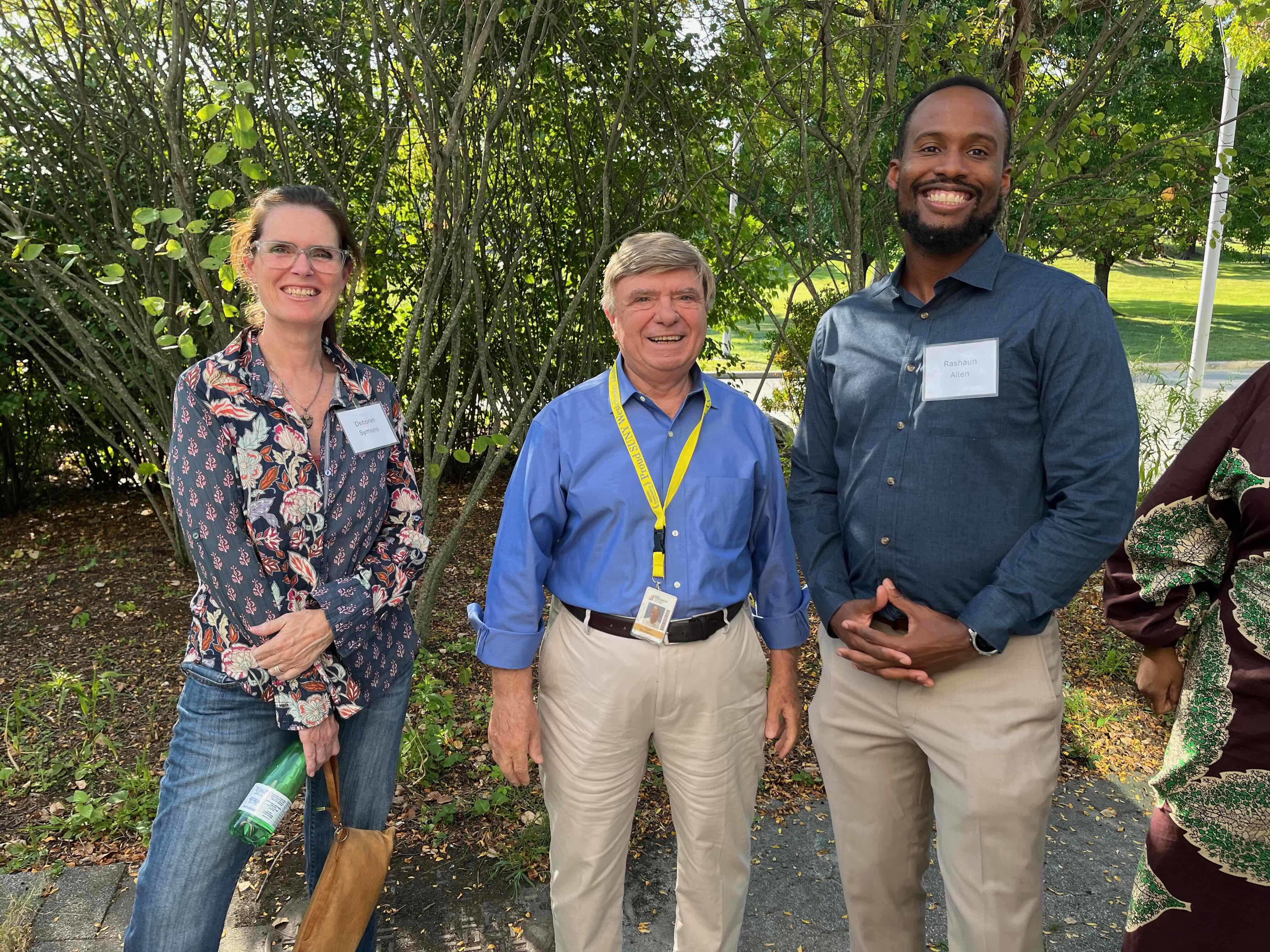
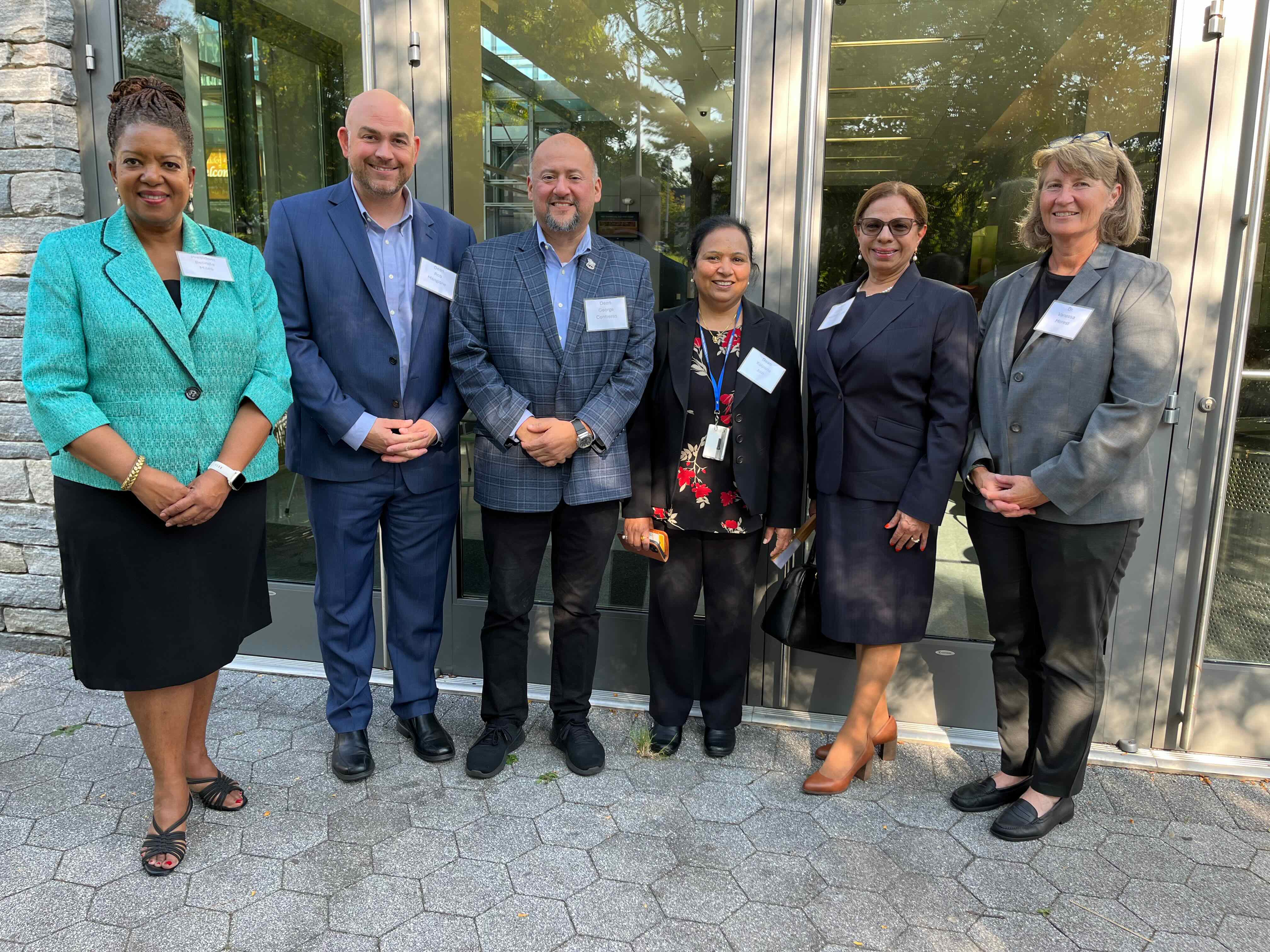
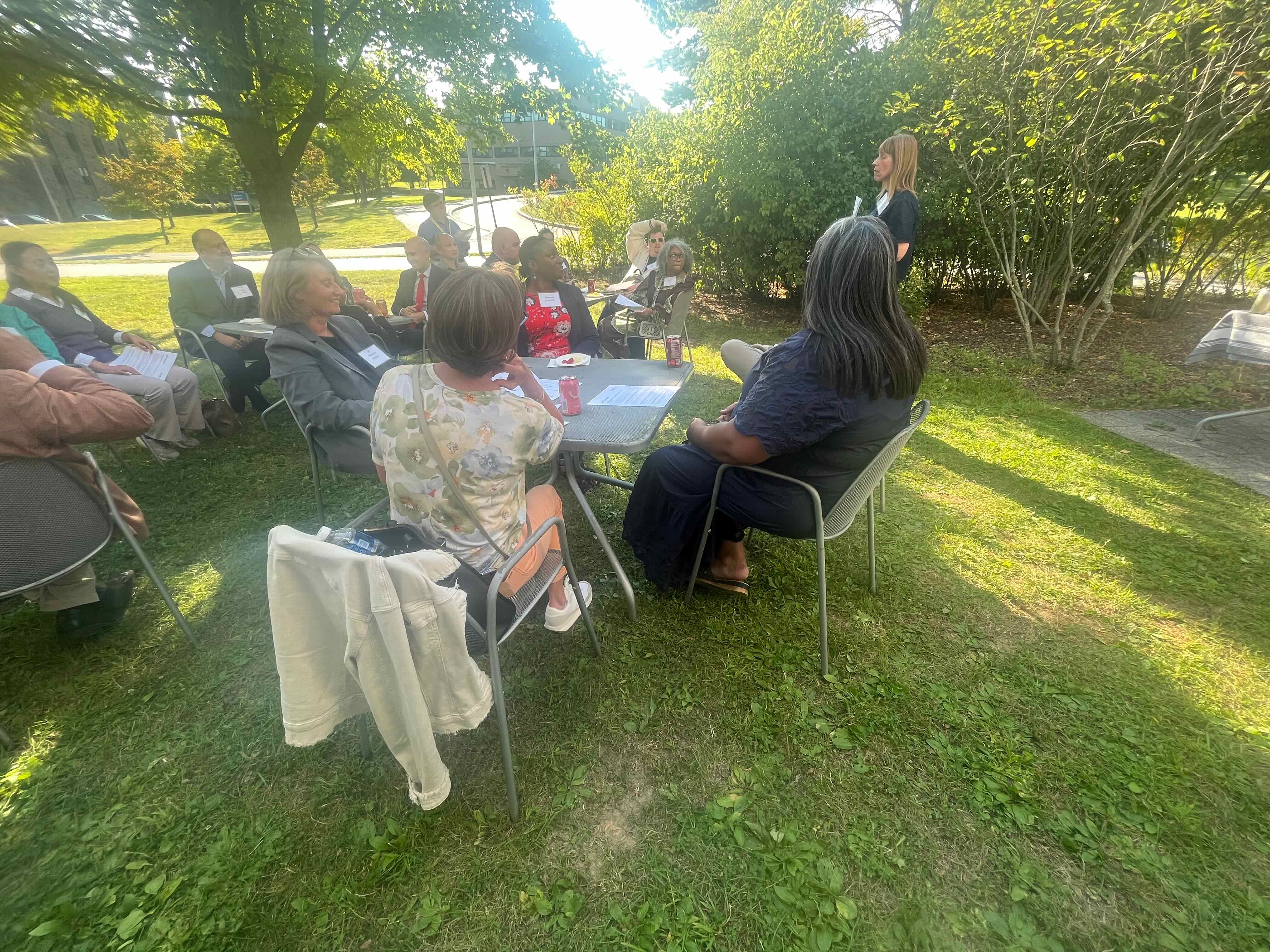
Faculty Stress Management
 We all experience stress in different levels. However, when it is not addressed, stress can impact you mentally and physically and can ultimately lead to burnout. The following are ways to help with the effects of stress.To alleviate stress symptoms, you must first become aware of the stress which is not as easy as it sounds. Noticing when the signs of stress are rising can be difficult because we may already be used to living with a heightened level of stress from the work that we do. Because of this, it is important to pay attention to the impact of increased stress physically, emotionally, psychologically, and socially. Do you notice or experience physical symptoms such as increased heartrate or headaches? Do notice or experience emotional symptoms such as feeling fluctuating moods or short tempered? Are you utilizing unhealthy coping skills such as increased alcohol use or other substances? Do you find yourself isolating, withdrawing, or cancelling plans more often? These may all be signs that you are experiencing increased levels of stress.
We all experience stress in different levels. However, when it is not addressed, stress can impact you mentally and physically and can ultimately lead to burnout. The following are ways to help with the effects of stress.To alleviate stress symptoms, you must first become aware of the stress which is not as easy as it sounds. Noticing when the signs of stress are rising can be difficult because we may already be used to living with a heightened level of stress from the work that we do. Because of this, it is important to pay attention to the impact of increased stress physically, emotionally, psychologically, and socially. Do you notice or experience physical symptoms such as increased heartrate or headaches? Do notice or experience emotional symptoms such as feeling fluctuating moods or short tempered? Are you utilizing unhealthy coping skills such as increased alcohol use or other substances? Do you find yourself isolating, withdrawing, or cancelling plans more often? These may all be signs that you are experiencing increased levels of stress.
So how can you help manage the stress better?
Identifying what may be causing or triggering the stress responses can be a great first step. Many automatically say that work is the root of all their stress. However, there may be other reasons such as family, financial, health, and much more that can trigger increased levels of stress. Understanding these triggers can be important and asking yourself the following questions may be helpful:
- What is happening at this moment?
- Who is impacted by what is happening in this moment?
- What feelings are associated with this moment?
- What experiences from your past are contributing to this moment?
- What are you noticing in your body and mind in this moment?
Also, getting a better picture of your own self-talk may put the level of stress in perspective. Many times, when we are stressed, our self-talk tends to become more negative.
There are some useful tools that you can use to become more aware of your stress and help alleviate stress symptoms:
- Using mindfulness techniques such as meditation, deep and controlled breathing, body scans to determined where your body is holding onto the stress, music, and yoga. All these techniques are useful in helping your body and your mind slow down a bit which can also help you release the tension and relax the whole self.
- Doing grounding techniques such as square breathing, yoga, and using your 5 senses will help bring your focus to your present environment and can also help refocus your attention away from your triggers to something more positive or relaxing.
- Moving your body can help release stress from your muscles and mind. Some forms of movement that are helpful are some forms of exercise, dancing, yoga, gardening, and walking.
- Getting creative can help reduce stress, decrease anxiety, and improve memory. Some ways to be creative are drawing, writing, cooking, and music.
The above are just some examples of how to identify and help your stress. It is important to have several techniques to help you. It is also important to find what helps you through the stress because this journey is truly individual and unique to you. If you have any questions about any of the techniques mentioned, please feel free to contact me at walesca.marmolejos@sunyecc.edu or 914-606-7268.
Walesca Marmolejos, LMSW
Department of Mental Health & Counseling Services
Student Center, Mental Health Suite
What is the Perkins Grant?
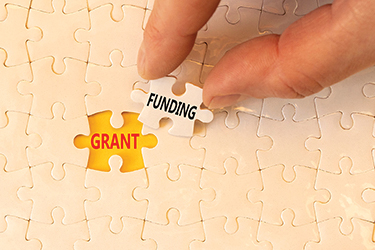 Many have heard, many also work directly with, and many don’t know anything about, the Perkins grant. More significantly, how the Perkins grant weaves into the fabric of SUNY WCC.The Strengthening Career and Technical Education for the 21st Century Act, known as Perkins V (5) provides funds for postsecondary programs (and secondary programs like BOCES) to improve the quality of career and technical education for students at sub-baccalaureate degree granting institutions while preparing them for high skill, high wage, or in demand occupations in current or emerging professions and industry sectors. Perkins supports increasing the employment opportunities for populations who are chronically unemployed or underemployed, including individuals with disabilities; individuals from economically disadvantaged families; out-of-workforce individuals; youth who are in, or have aged out of, the foster care system, and homeless individuals.
Many have heard, many also work directly with, and many don’t know anything about, the Perkins grant. More significantly, how the Perkins grant weaves into the fabric of SUNY WCC.The Strengthening Career and Technical Education for the 21st Century Act, known as Perkins V (5) provides funds for postsecondary programs (and secondary programs like BOCES) to improve the quality of career and technical education for students at sub-baccalaureate degree granting institutions while preparing them for high skill, high wage, or in demand occupations in current or emerging professions and industry sectors. Perkins supports increasing the employment opportunities for populations who are chronically unemployed or underemployed, including individuals with disabilities; individuals from economically disadvantaged families; out-of-workforce individuals; youth who are in, or have aged out of, the foster care system, and homeless individuals.
At SUNY WCC, all of our degree programs/majors are divided into Liberal Arts degrees and Career & Technical Education (CTE) degrees with a majority classified as CTE.
Perkins funding provides support for students through staffing in various areas that includes Success Navigators in Academic affairs, Career Development specialists, Academic Counselors, Technical Assistants, Tutors, Program Specialists, Faculty Liaisons, and a Division Coordinator of CTE. Over the past couple of years, Perkins has funded certification exams to erase the financial obstacle to credential access and during the 2023-24 grant year saw a one-time increase in funding allowing for the purchase of critical equipment upgrades and necessary supplies for almost all the CTE degree programs.
Success Navigators, formerly “completion coaches”, conduct a host of engagement efforts, career development support, on boarding workshops, and critical collaboration with curriculum chairs, Deans, and faculty to support student success. With the introduction of a texting platform, Success Navigators conduct continuous engagement with students throughout the school year in addition to performing outreach to non-registered students to support enrollment efforts. Braided with other grants and efforts around the college to support student success and career development, yearly Perkins funding is critical to growing a network of support for students.
It is important to note, faculty do not apply for Perkins funding. The Deans often consult with Department or Curriculum Chairs to discuss funding needs and the Deans will see if Perkins can support efforts.
Dave Arons, Division Coordinator of Career & Technical Education, Academic Affairs
2024 Annual Celebration of Teaching and Learning Symposium
The Center for Teaching and Learning Hosted its 2024 Annual Celebration of Teaching and Learning Symposium for WCC faculty on Wednesday, May 8. Thank you, Dr. Belinda Miles, and Dr. Vanessa Morest for joining and supporting this Symposium.
The keynote speaker, Dr. Lisa Nunn, shared insight on how to cultivate belonging from her book, “College Belonging,” available online here. You can also read another book authored by Lisa Nunn, “33 Simple Strategies for Faculty Learning,” online. We thank the WCC librarians for making the book available online.
If you missed the Symposium, we invite you to watch the full recording, here. You must login with your WCC credentials. Thank you, Jose Chavez, for producing the video and the Learning Resources Media and Instructional Technology office for providing the amazing technology that allowed us to engage so effectively with our keynote speaker. “I just wanted to say thank you again for inviting me and for hosting such an excellent event. I loved being a part of it. Easily the most included I’ve felt in the room doing a Zoom keynote EVER. Thank you.” Lisa Nunn
Immediately following the keynote, Faculty, staff, and administrators participated in breakout sessions. Thank you, Jackson Byrnes, and the Creative Communications Office for capturing a few engaging photos from the breakout sessions.
To all who participated, thank you!
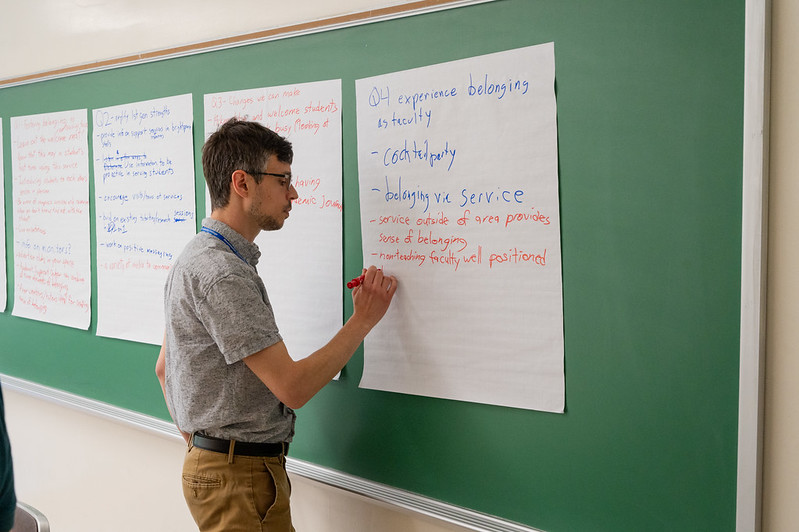
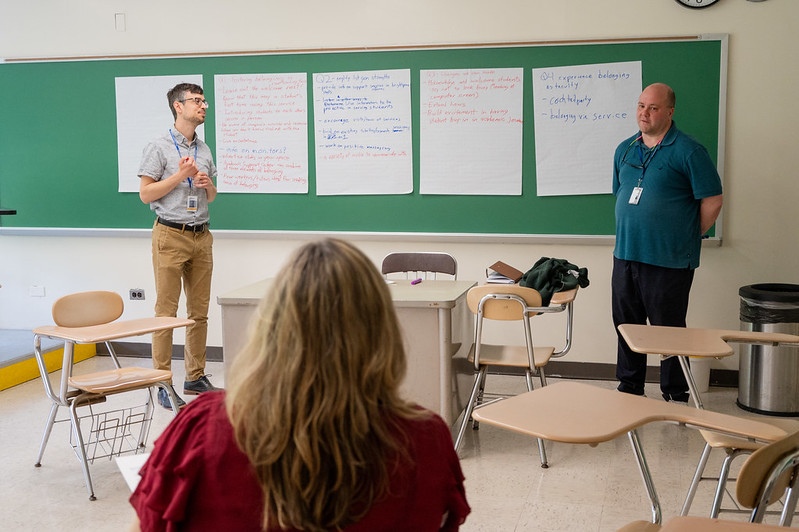
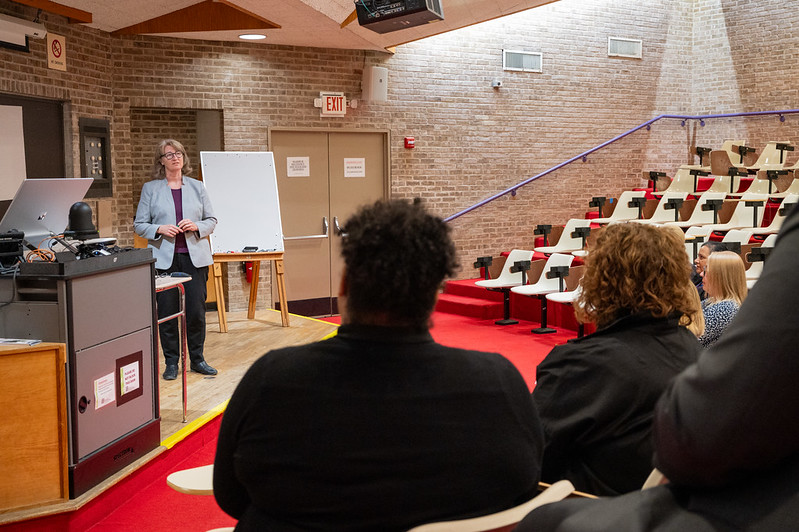
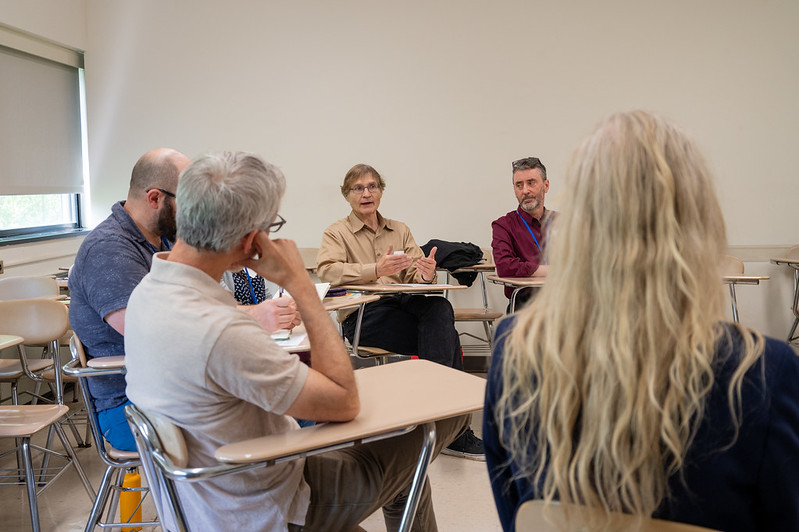
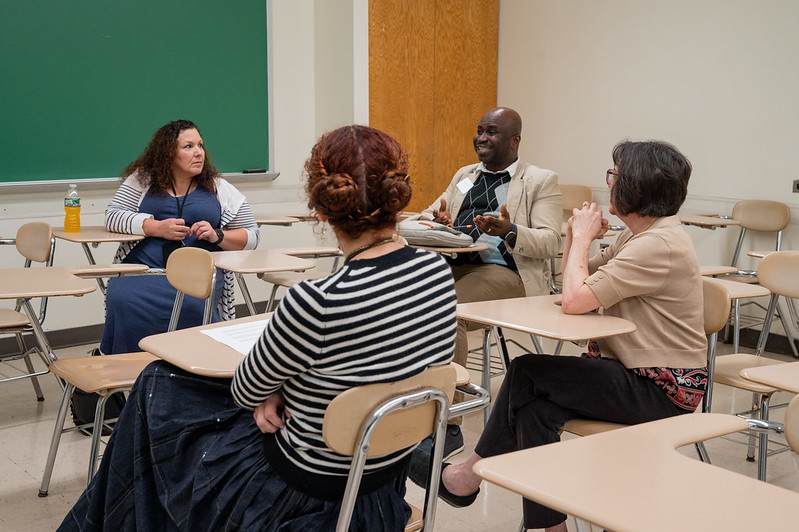
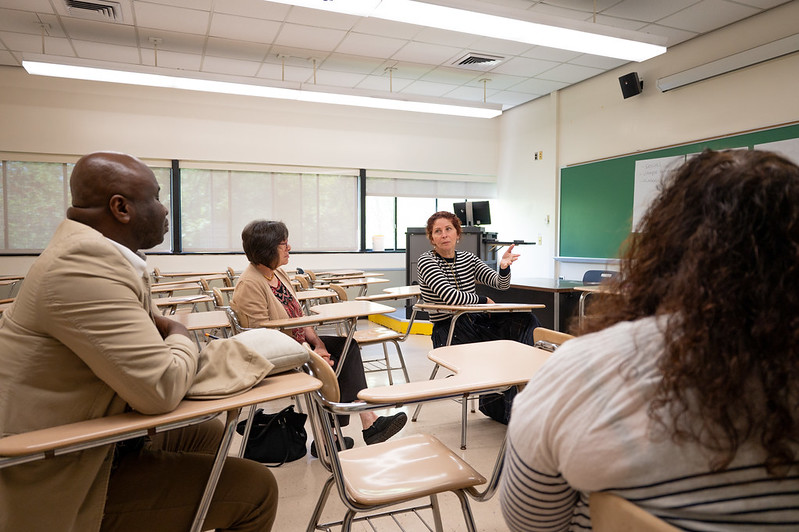
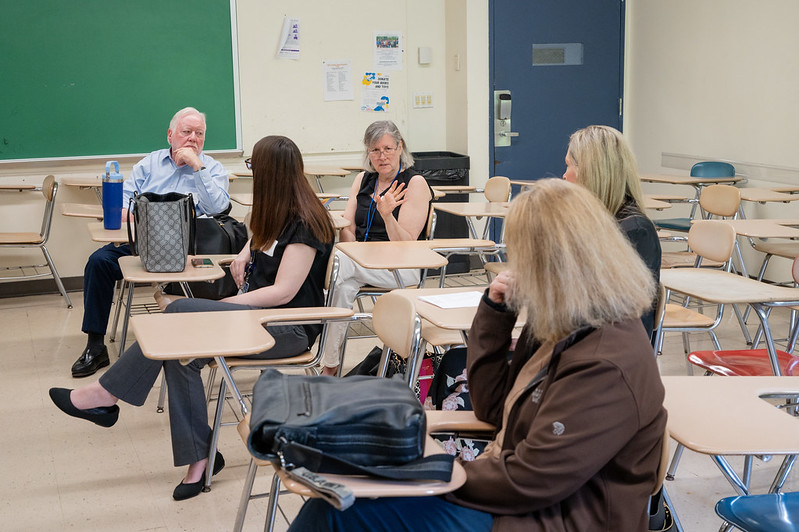
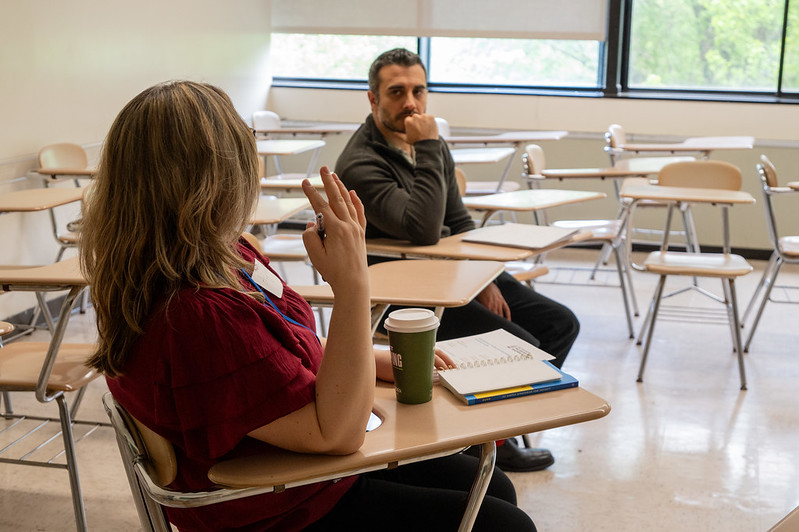
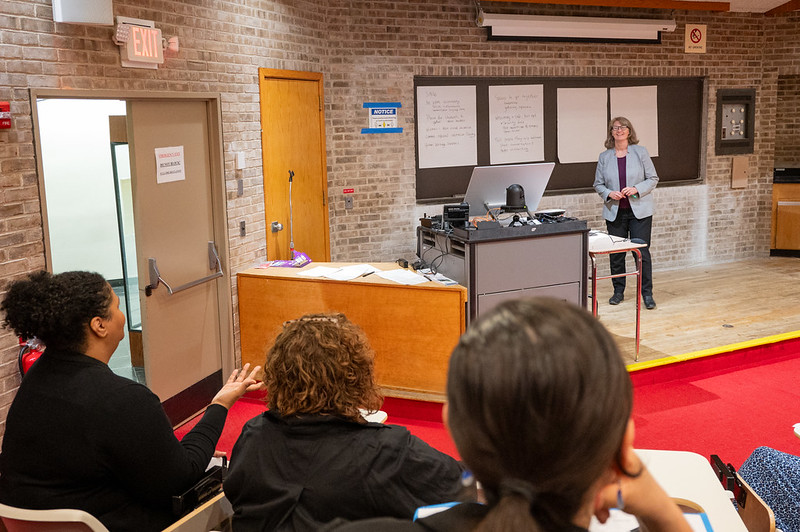
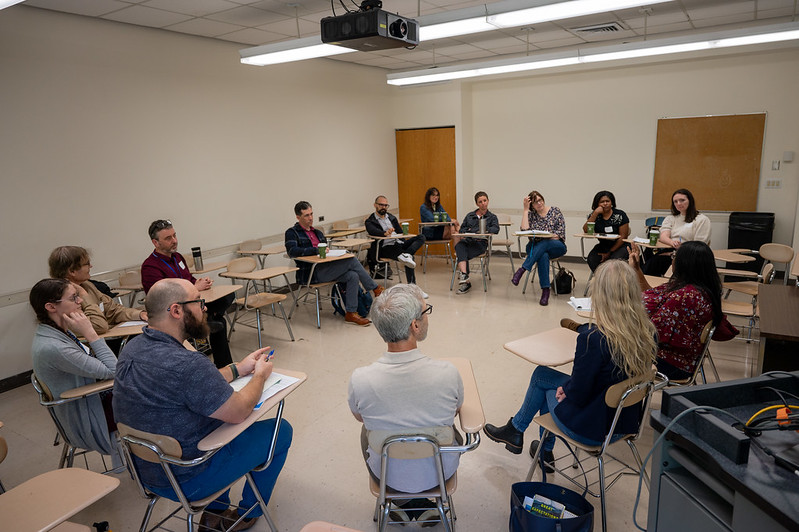
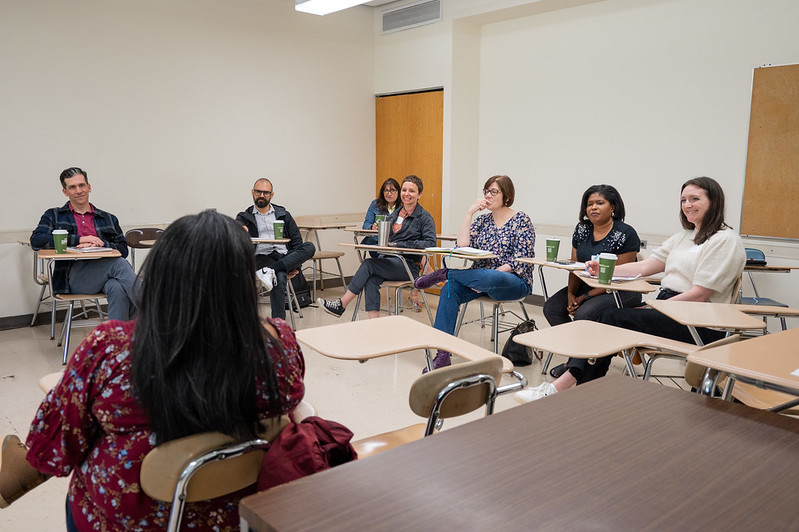
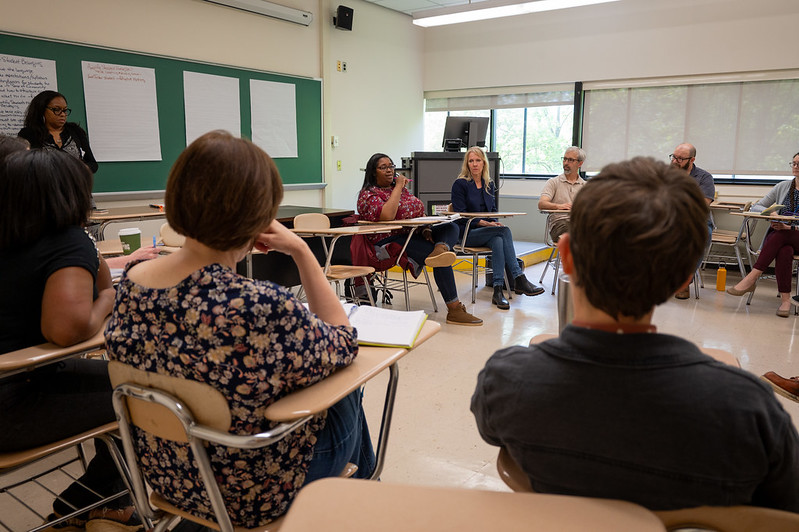
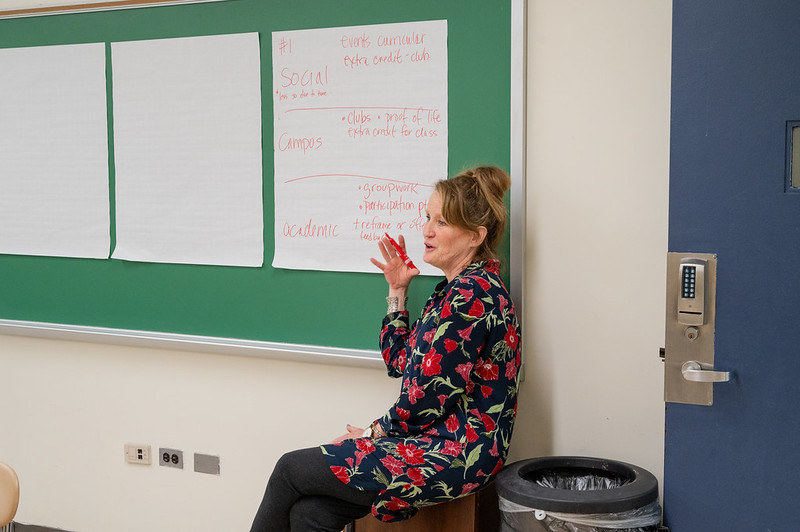
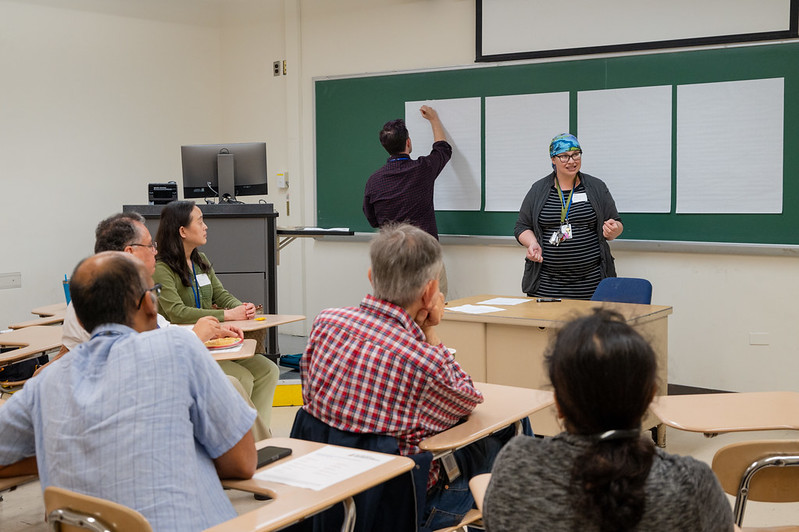
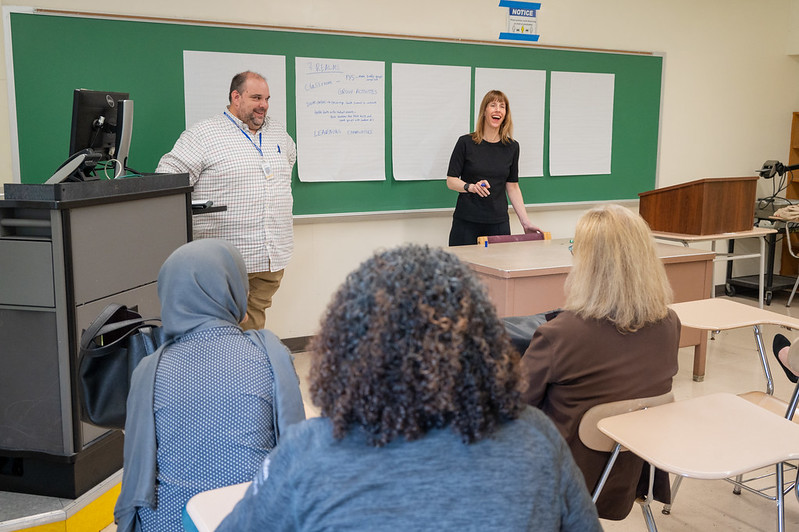
Upcoming CTL Professional Development Workshops
Mindfulness Meditation with the Center For Teaching & Learning! Our meditations this term will be on Zoom, 9:00 a.m. every Thursday.
October 16, 11:15am – 12:30pm – Virtual Via Microsoft Teams
Autism Supportive College Training for Faculty and Professional Staff: Discussion with Prof. Jay Dolmage, English, Univ of Waterloo
November, 20, 11:30am – 12:45pm – Virtual
Grant and Award Opportunities: A conversation with Laurie Miller McNeill and Laura Barrett, WCC Grant Office. Presentation by Laurie and Laura to learn about WCC grants to support professional development/teaching and learning.
December 18, 11:15am – 1:45pm TBA
Faculty Holiday Party hosted by the deans of WCC. Wear your ugly sweater and join us for a fun holiday celebration.
CTL Resources
Stay tuned for new episodes of CTL’s Our Turn to Learn Podcast
Our Turn to Learn • A podcast on Spotify for Podcasters
Join host Nicole Tschampel as she learns from students, faculty, administrators, and leaders in the world of higher education. Highlighting excellence in the SUNY Westchester Community College classrooms, amplifying the extraordinary stories of the faculty and students, raising awareness of high impact practices, and facilitating informed conversations about the issues that impact the WCC classrooms, campus and community, this podcast is for anyone that wants to foster a dynamic learning environment that promotes student success and retention.
Past Newsletters
Click to open and see the March 2024 Newsletter
Our Mission
CTL supports faculty professional development and promotes high-impact educational practices by producing programming and materials, and by fostering collaboration and community among faculty across the college.
Our Vision
CTL supports continual growth by connecting faculty members with ideas, methods, and people that spark insight and reflection. Our goal is for each and every faculty member to feel excited to come to work, supported in their career, and passionate about supporting students at WCC. The Center will evolve to meet the evolving needs of faculty, and be run collaboratively by and for faculty. We want to foster a campus culture of empowered experimentation and collaboration across disciplines and other boundaries.
We thank CTL 2023-24 Innovation Fellows for their innovative “teaching with tech” experiments.



On Wednesday, March 20, The Center for Teaching and Learning hosted a Innovation Fellows Showcase, coordinated by CTL Co-Director, Erich “Ricky” Werner. We wish to thank the CTL 2023-24 Innovation Fellows for demonstrating their innovative “teaching with tech” experiments.
Effective Teaching and Learning Strategies
Dr. Don Simmons Jr., Information Literacy Coordinator & Student Engagement Librarian shares best practices through his Information Literacy Tips
The Internet – widely considered as our strongest ally – provides us with effortless access to a wealth of information at the tip of our fingers. No matter the device – whether it’s a phone, computer, or even a VR headset – the Internet, accompanied with social media, allows us to effortlessly access endless content, spanning entertainment, academic resources, and materials for leisure and professional work. This abundance of resources impacts all of us, including college students and academic practitioners, transforming how we access content every day. But this privilege of information access comes at a price. As college students dedicate an average of 8 to 10 hours daily to their devices, and misinformation floods our media and social platforms, the evolving digital landscape of the Internet has swiftly reshaped our academic and socio-political environments. College educators must acknowledge these changes and implement effective information literacy strategies to support both students and the academic community.
Here are a few information literacy tips and best practices shared by academic librarians and professionals nationwide:
Click to open and see information literacy tips and best practices
- Request an information literacy session for your class: Nothing beats having a seasoned information literacy expert in the classroom. As librarians, we’re experts in information literacy, ready to help your students master digital resources and improve their research and citation skills for academic success. Feel free to request a session today!
- Equip your students with trustworthy news-sources: Offer a comprehensive list of reliable news outlets and academic databases students can use for research, while also emphasizing their importance. Sharing these resources will empower them to navigate the vast information landscape with confidence.
- Embrace diverse perspectives: Encourage your students to explore diverse opinions from several reliable sources, broadening their horizons and deepening their understanding of their subject. Remind them that understanding a topic may demand multiple perspectives, and a more nuanced outlook on complex issues.
- Promote consistent fact-checking: Viral misinformation and disinformation has become common place, and it’s important to cultivate a healthy skepticism among students. Encouraging them to critically evaluate social media posts and other sources before accepting them blindly, improves the development of their fact-checking abilities.
- Think before you share: It’s natural for all of us, including educators, to have been misled by sharing some “fake news” article. Encouraging students to take a moment of reflection serves as a gentle reminder that every (X) tweet, Facebook share, IG post, or text message reflects their reputation. Promote deliberate thoughtfulness over impulsive reactions when students are online.
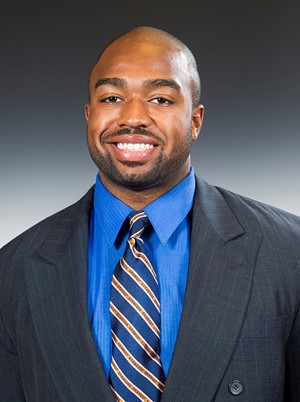
Don Simmons Jr. Biography
Instructor Librarian
don.simmonsjr@sunywcc.edu
Location: LIB118
Phone: 914-606-8529
Click to open and see Don Simmons Jr. Biography
Don Simmons Jr. earned his EdD in Higher Education Administration from the University of Southern Mississippi, holds a Master’s degree in Library and Information Science, and graduated with a bachelor’s degree in Communication and Rhetorical Studies from Syracuse University. Formerly a Division-1 football player from 2011-2016 at Syracuse, he is currently the Information Literacy Coordinator and Student Engagement Librarian at WCC. In his role, Don oversees the library’s information literacy program, organizes outreach activities, and develops programming for students. Don has presented at various conferences, focusing on Critical Information Literacy (CIL) and the impact of misinformation on social media. Notably, he presented at the New Librarianship Symposia Series: Equity, Diversity, and Inclusion in 2021 and the ACRL conference in 2023, covering Critical User Services for underserved students alongside Laura Saunders, Rebecca Davis, and Vivienne Piroli from Simmons University.
Professors from the Communications, Journalism & Media Arts Department share how they engage students in the classroom.
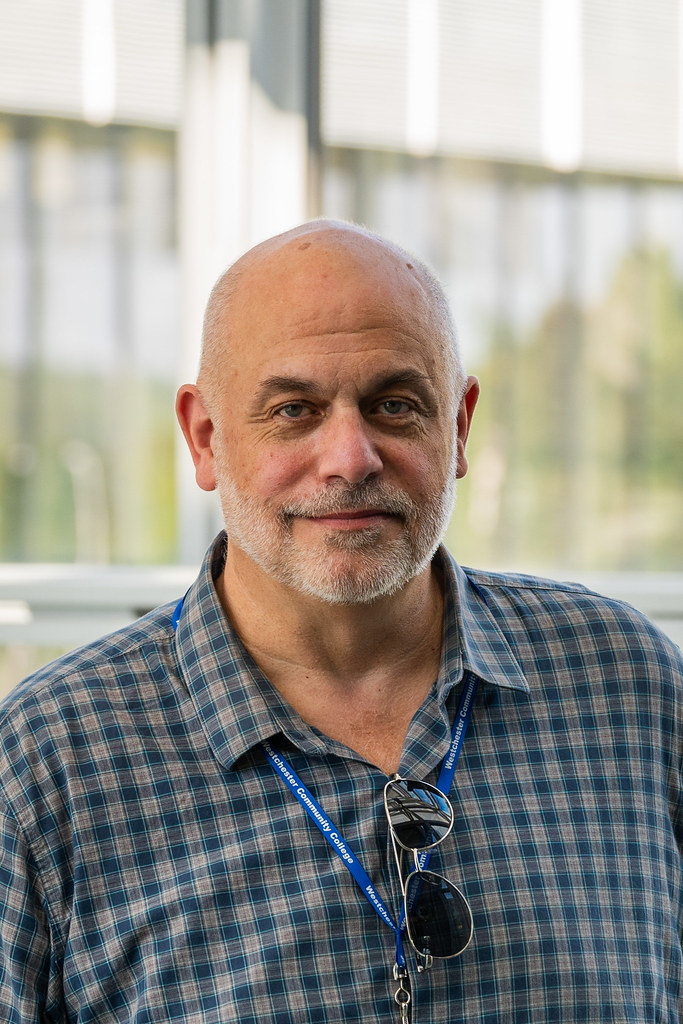
Eric Luther
Assistant Professor, Curriculum Chair, Journalism
Department of Communications, Journalism & Media Arts
Question: How would you engage students in answering questions?
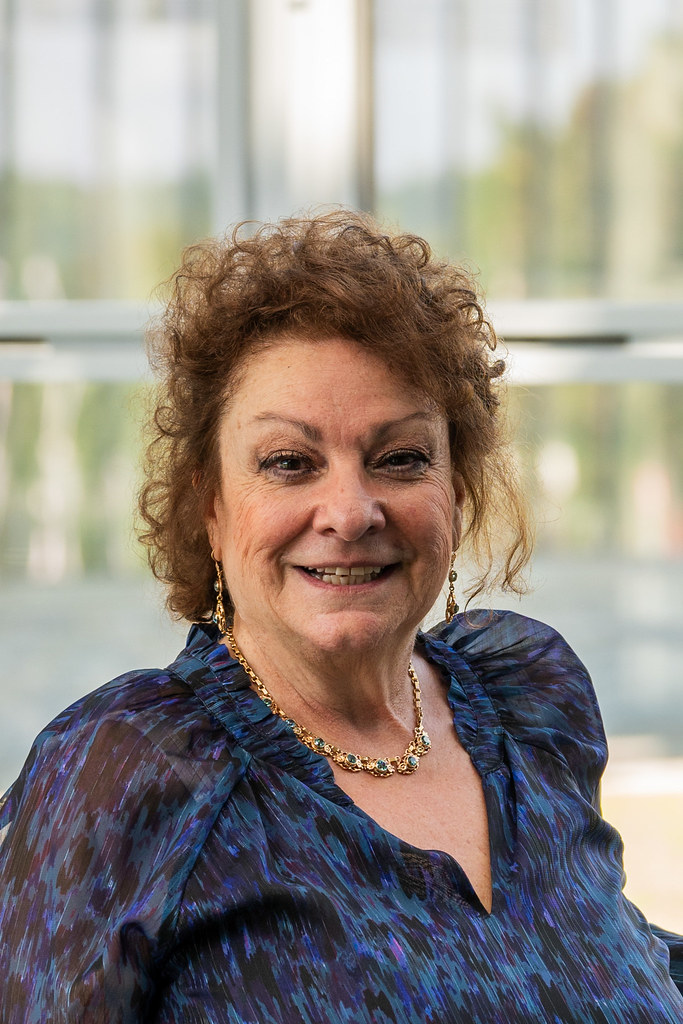
Linda Kalfayan
Associate Professor, Communications & Media Arts
Department of Communications, Journalism & Media Arts
Student Question: How do you create a sense of belonging in the classroom?
It is important to help students feel a sense of belonging before they step foot in the classroom. I utilize Brightspace for my in-person and asynchronous classes. As an instructor, I record welcome videos and post them on Brightspace for both in-person and asynchronous classes. I record three-minute videos that tells students a little bit about me. Students want to know about you. For example, where you went to college, professional experience, and hobbies. I share insight as to what this class will do for them, how the information learned in class can be applied in their lives, and where it could take them professionally.
I also record and introduce a welcome video that explains how to understand the syllabus. I have a total of fifteen videos for each of my courses: a video for each week of the semester. My students will see me whether they take my in-person class, or synchronous, they will see me. I also create videos that provides a in-depth explanation of each assignment. I realize that that student learning varies, and each student processes the material differently. My PowerPoint lectures are posted to Brightspace as well. The welcome videos, the syllabus video, the assignment videos, and overall structure of my classes, are designed to help my students feel a sense of belonging before they enter the classroom, and throughout the semester.
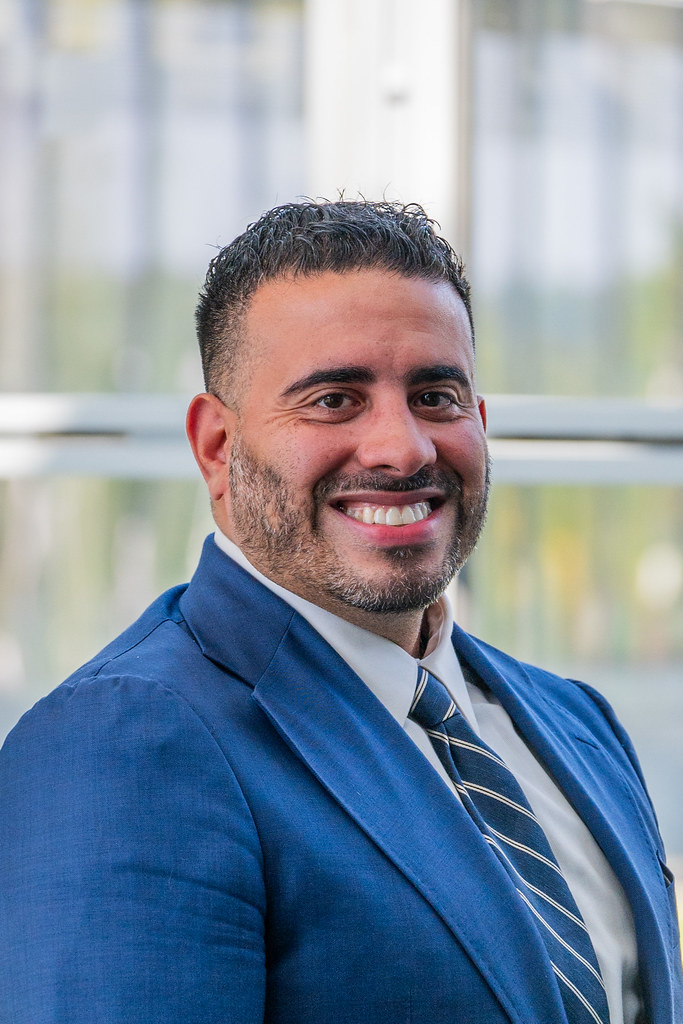
Julio Rodriguez
Assistant Professor, Department Co-Chair, Communications, Journalism & Media Arts
Department of Communications, Journalism & Media Arts
Question: Share a communication strategy that could be used across curricula.
As instructors, we often over- lecture and run the risk of information overload. Regardless of the discipline that one teaches; it is important to allow students opportunities to contribute to the lecture or discussion. Encourage student feedback and allow them the opportunity to share their knowledge.
One thing I teach in the class is verbal communication. I glean from them, because it is not just me being the educator and them being the student. I can, and often learn from them as well. All students, regardless of curricula, can learn from each other. As an educator, we must have the mindset of being a student by listening to students, bringing them into the lecture and conversation so they can learn from each other. This approach fosters a sense of belonging and fosters an open environment of learning.
CTL Resources
Our Turn to Learn • A podcast on Spotify for Podcasters
Join host Nicole Tschampel as she learns from students, faculty, administrators, and leaders in the world of higher education. Highlighting excellence in the SUNY Westchester Community College classrooms, amplifying the extraordinary stories of the faculty and students, raising awareness of high impact practices, and facilitating informed conversations about the issues that impact the WCC classrooms, campus and community, this podcast is for anyone that wants to foster a dynamic learning environment that promotes student success and retention.
CTL Recommended Reading curated by Prof. Rebecca Steere

Hard copy and electronic copies are available at the library.
Visit the Library Page Here
Upcoming Events
Mindfulness Meditation with the Center For Teaching & Learning!
Our schedule this term will be:
- Tuesday Guided Meditation – 9:00 a.m. on Tuesdays for a 15-minute guided meditation
Zoom Link – Meeting ID: 840 8269 5291 Passcode: 813555 - Wednesday Mindfulness Reminder – every Wednesday you will receive a short message designed to help bring your meditation practice into your day.
- Thursday Quick Break – 11:45 a.m. for a quick 5-minute mindfulness break
Zoom Link – Meeting ID: 889 2951 1954 Passcode: 498104
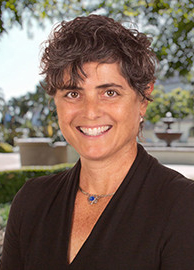

Lisa Nunn Reading Group
Date: Wednesday, April 17, 2024
Time: 11:15 a.m. – 12:15 p.m.
Location: Gateway (hybrid – in person and zoom)
Faculty will discuss the 33 Tips book
Celebration of Teaching and Learning Symposium
Date: Wednesday, May 8, 2024
Time: 10:00 a.m. – 2:00 p.m.
Location: Science 102
Faculty discuss a chapter from “College Belonging” by Dr. Lisa Nunn, Symposium speaker. Keynote by Prof. Lisa Nunn on “academic belonging.” Lunch provided. View the event page.
Have an idea for a professional development workshop, email us: centerforteachingandlearning@sunywcc.edu.

